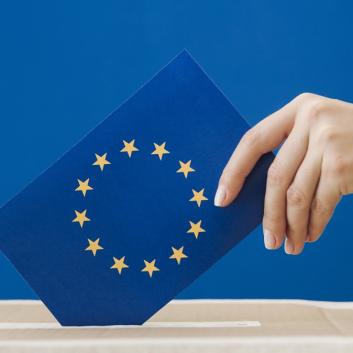EU Green Deal climate package set out to fundamentally change lives and businesses until 2030
The European Commission adopted a package of proposals on 14 July to apply significant changes in the EU's climate, energy, land use, transport and taxation policies to cut net greenhouse gas emissions by at least 55% by 2030, compared to 1990 levels.
The goal is to make Europe the world's first climate-neutral continent until 2050 by embracing the European Green Deal in the next decade.
The proposal introduced by the European Commission is presenting the legislative tools to deliver on the targets agreed in the recently adopted European Climate Law.
These changes aim to fundamentally transform the European economy and society to create a fair, green and prosperous future.
President of the European Commission, Ursula von der Leyen, said:
“The fossil fuel economy has reached its limits.
We want to leave the next generation a healthy planet as well as good jobs and growth that does not hurt our nature.
The European Green Deal is our growth strategy that is moving towards a decarbonised economy.
Europe was the first continent to declare to be climate neutral in 2050, and now we are the very first ones to put a concrete roadmap on the table.
Europe walks the talk on climate policies through innovation, investment and social compensation.”
The package introduces a comprehensive and interconnected set of proposals that will enable the necessary acceleration of greenhouse gas emission reductions until 2030.
The specific targets are a combination of new strategies applied in various sectors.
Plans are mainly focusing on emissions trading to new sectors and a tightening of the existing EU Emissions Trading System; increased use of renewable energy; greater energy efficiency; a faster roll-out of low emission transport modes and the infrastructure and fuels to support them; an alignment of taxation policies with the European Green Deal objectives; measures to prevent carbon leakage; and tools to preserve and grow our natural carbon sinks.
What to expect as part of the new plans:
- The EU Emissions Trading System (ETS) puts a price on carbon and lowers the cap on emissions from specific economic sectors every year. The Commission proposal aims to reduce the overall emission cap further and increase its annual rate of reduction. This would mean to phase out free emission allowances for aviation and include shipping emissions for the first time in the EU ETS. Besides, a separate new emissions trading system is set up for fuel distribution for road transport and buildings. The Commission also proposes to increase the size of the Innovation and Modernisation Funds.

- Member States should spend the entirety of their emissions trading revenues on climate and energy-related projects. A dedicated part of the revenues from the new system for road transport and buildings should address the possible social impact on vulnerable households, micro-enterprises and transport users.
- The Effort Sharing Regulation assigns strengthened emissions reduction targets to each Member State for buildings, road and domestic maritime transport, agriculture, waste and small industries.

- Member States also share responsibility for removing carbon from the atmosphere, so the Regulation on Land Use, Forestry and Agriculture sets an overall EU target for carbon removals by natural sinks, equivalent to 310 million tonnes of CO2 emissions by 2030. National targets will require Member States to care for and expand their carbon sinks to meet this target. By 2035, the EU should aim to reach climate neutrality in the land use, forestry and agriculture sectors, including also agricultural non-CO2 emissions, such as those from fertiliser use and livestock.
- Stronger CO2 emissions standards for cars and vans will accelerate the transition to zero-emission mobility by requiring the average emissions of new cars to come down by 55% from 2030 and 100% from 2035 compared to 2021 levels. As a result, all new vehicles registered as of 2035 will be zero-emission. To ensure that drivers can charge or fuel their cars at a reliable network across Europe, the revised Alternative Fuels Infrastructure Regulation will require Member States to expand charging capacity as well.
This will require charging and fuelling points at regular intervals on major highways: every 60 kilometres for electric charging and every 150 kilometres for hydrogen refuelling.
- The Alternative Fuels Infrastructure Regulation requires that aircraft and ships have access to clean electricity supply in major ports and airports. The ReFuelEU Aviation Initiative will oblige fuel suppliers to blend increasing levels of sustainable aviation fuels in jet fuel taken on-board at EU airports.
- A revision of the Energy Taxation Directive proposes to align the taxation of energy products with EU energy and climate policies, promoting clean technologies and removing outdated exemptions and reduced rates that currently encourage the use of fossil fuels.
A new Carbon Border Adjustment Mechanism will put a carbon price on imports of a targeted selection of products to ensure that ambitious climate action in Europe does not lead to ‘carbon leakage'.
Instead of pushing carbon-intensive production outside Europe, this regulation will ensure that European emission reductions contribute to a global emissions decline.
It also aims to encourage industry leaders outside the EU and international partners to take steps in the same direction.
Sharing responsibility evenly across different sectors and Member States, and providing additional support where appropriate is critical in making these changes happen.
A new Social Climate Fund was also proposed to ensure a fair social transition and provide dedicated funding to Member States.
This support would help citizens finance investments in energy efficiency, new heating and cooling systems, and cleaner mobility.
The Social Climate Fund will provide €72.2 billion of funding to Member States, for the period 2025-2032; with a proposal to draw on matching Member State funding, the Fund would mobilise €144.4 billion for a socially fair transition.
Together, our proposals will spur the necessary changes, enable all citizens to experience the benefits of climate action as soon as possible, and provide support to the most vulnerable households. Europe's transition will be fair, green and competitive,”
said Frans Timmermans, Executive Vice-President for the European Green Deal about the new proposal package.
Headline image: Paul Hanaoka, Unsplash
















